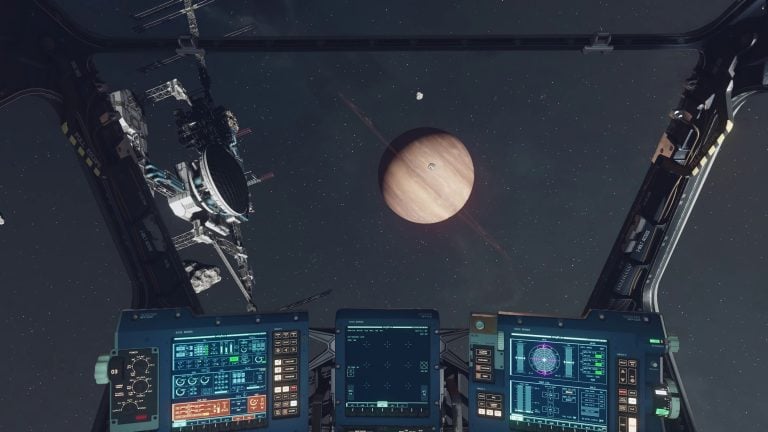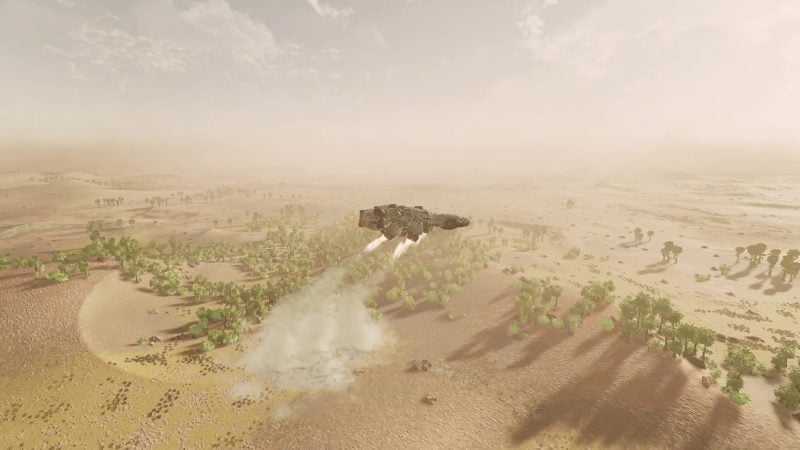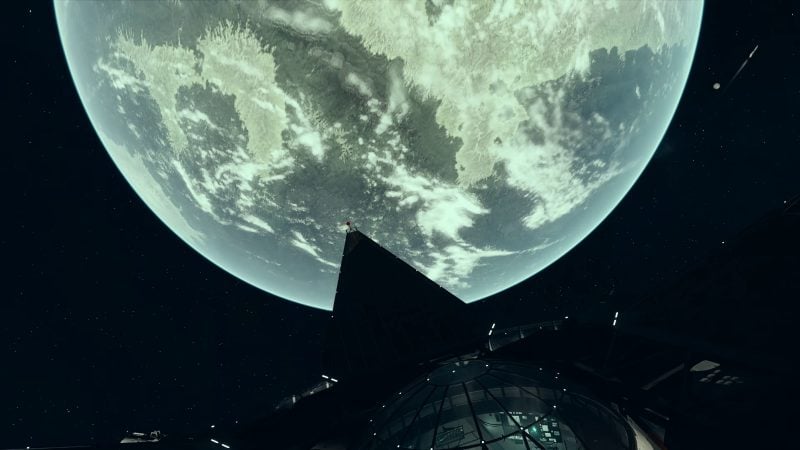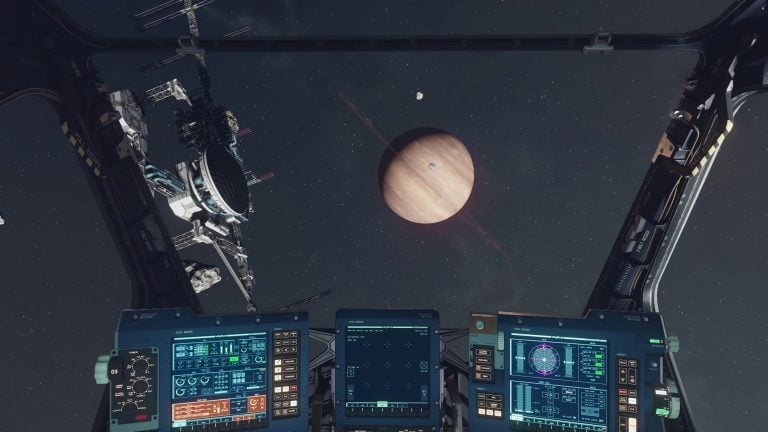The gaming cosmos appears to buzz with a sort of cosmic electricity as the time until Starfield‘s September 6th release draws nearer. With Starfield, which is rumored to be the most anticipated game of the year or even the decade, players are promised a once-in-a-lifetime epic space-faring quest with thousands of fully explorable planets, challenging side quests, and a powerful modding kit that allows you to make entirely new planets. A swelling flood of review bombing campaigns and criticism, which threatens to destroy the game’s reputation before it even hits the market, is the darker side of this enthusiasm as we all get ready for takeoff. Why is the issue at hand?

Not everyone is going to want to play Starfield, but at least haters and critics should try to keep their discussions civil if not logical.
It’s simple to dismiss trolls like one particular Twitter user who ripped into Starfield by asserting that the game’s exploration is inherently dishonest because you can’t land on gas giants.
When informed by numerous online users with rudimentary knowledge of science and science fiction, he responded quickly and sharply, “But you can build ships that look like robots and have powers?” Anyone who has even a passing familiarity with the genre may find this argument ludicrous, but it illustrates a troubling tendency in gaming culture: the inability to distinguish between legitimate criticism and simply hate for the purpose of hating.
Why not? It’s a video game….with alien creatures and jetpack and spaceships shaped like robots…why is the line drawn on gas giant exploration
kingthrash S-CLASS gamer (@DoWhatYouDo6) August 29, 2023
Do not misunderstand; science fiction does take certain liberties. Stretching the boundaries of what is currently known about science is a staple of the genre, from the transporters in Star Trek to the lightsabers in Star Wars. These imaginative escapades, nevertheless, are typically restrained by some adherence to scientific norms, even if only loosely. No one in Star Trek has ever set foot on a gas giant for a leisurely stroll, much less traveled directly toward the sun. You can bet your favorite warp drive on it.
The devoted Xbox haters inhabit a different part of this depressing universe, and they seem to be driven only by a basic human impulse to take sides for whatever reason.
If we follow their reasoning, PlayStation has already prevailed—Microsoft acknowledges this. Not to mention, the PlayStation 5 is currently king according to stats and the eye test. It has a lot more exclusives, both in terms of quantity and debatable quality. However, the impending Starfield Xbox exclusivity has raised hackles as though it were a divine injustice. It’s an old story, or at least it dates back to the console wars, and it’s driven by illogical brand devotion that benefits no one.

A PlayStation zealot might openly mock Starfield, not because of Bethesda or any aspect of the game, but just because it’s coming out on a system they don’t own or like. They would surely shout Starfield’s praises if it were a PS5 exclusive because the criticism is so general.
Get our newest content first by following Xfire on Google!
Ironically, there was a potential that Starfield might also have been a PS5 exclusive. Until Microsoft learned about this scheme and made the decision to acquire ZeniMax Media instead.
Not to be forgotten is the group of detractors who believe Bethesda is the same as “buggy.” These people still criticize games like The Elder Scrolls V: Skyrim despite its enormous popularity and durability in the name of informing the rest of us unfortunate, naive souls.

Even if it’s true that no game is flawless, it doesn’t assist anyone to trash a studio’s whole body of work in one fell swoop. These kinds of critics don’t contribute anything to the conversation; instead, they merely use popular narratives to experience the dopamine rush that comes from briefly having people agree with them.
What can we conclude from all of this confusion? It’s critical to distinguish between legitimate criticism and trolling, between reasoned discussion and vengeful hyperbole. Starfield carries the weight of a $7.5 billion investment by Microsoft as well as the expectations of many gamers around the world. It might very well be a contender for Game of the Year. It’s also Bethesda’s first new original product in decades, which is both a benefit and a problem.
Starfield merits being evaluated on its genuine merits and weaknesses rather than being used as another battleground in small-scale internet disputes because of its rich features and immersive setting.

There is a dire need to give constructive criticism the upper hand over destructive trolling as Starfield draws closer to its launch. Review bombing is a problem that needs to be actively addressed by the numerous platforms like Metacritic. For while there will always be black holes of negativity in the gaming industry, the light of really starry encounters should, and must, outshine them as we explore the vast universe that Starfield provides.
Let’s hope the discussions we have after the game’s release focus on its accomplishments rather than the flaws of its most vocal critics. Since we ultimately aim to be a certain kind of gaming community, the question isn’t only about how wonderful Starfield is.
